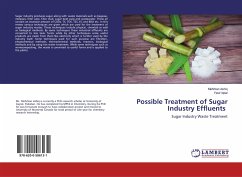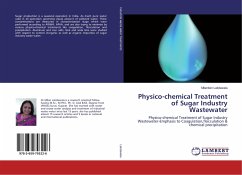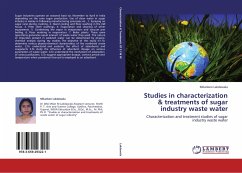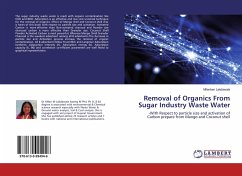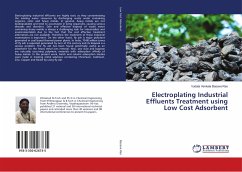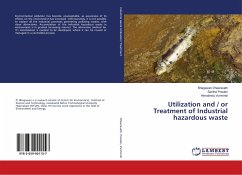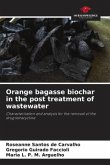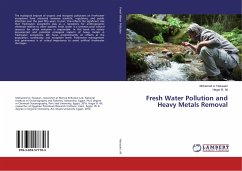Sugar industry produces sugar along with waste materials such as bagasse, molasses, filter cake, filter mud, sugar beet pulp and wastewater. These all contain an excessive amount of CODs, TS, TDS, TSS, EC and BOD etc. In this review various techniques are given which are used for the treatment of sugar industry wastes. These techniques include physical, chemical as well as biological methods. By some techniques these industrial effluents are converted to less toxic forms while by other techniques some useful products are made from them like electricity which is further used by the industry itself. Some techniques used for such purpose are filtration, physiochemical methods, electrochemical methods, reactors, biological methods and by using hot water treatment. While some techniques such as vermicomposting, the waste is converted to useful forms and is applied to the plants.
Bitte wählen Sie Ihr Anliegen aus.
Rechnungen
Retourenschein anfordern
Bestellstatus
Storno

